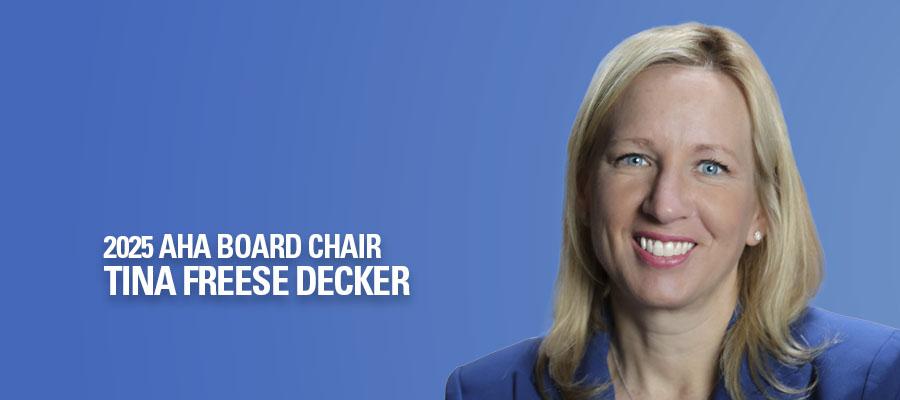Chair File: Using Innovation and AI to Advance Health

With all of the challenges facing health care — a shrinking workforce population, reduced funding, new technologies and pharmaceuticals — it's no longer an option to change, but an imperative. In order to keep caring for our communities well into the future, we need to transform how we provide care to people. Technology, artificial intelligence and digital transformation can not only help us mitigate these trends but truly innovate and find new ways of making health better.
There are many exciting capabilities already making their way into our field. Ambient listening technology for providers and other automation and AI reduce administrative burden and free up people and resources to improve front-line care. Within the next five years, we expect hospital “smart rooms” to be the norm; they leverage cameras and AI-assisted alerting to improve safety, enable virtual care models across our footprint and allow us to boost efficiency while also improving quality and outcomes.
It’s easy to get caught up in shiny new tools or cutting-edge treatments, but often the most impactful innovations are smaller — adapting or designing our systems and processes to empower our teams to do what they do best.
That’s exactly what a new collaboration with the AHA and Epic is aiming to do. A set of point-of-care tools in the electronic health record is helping providers prevent, detect and treat postpartum hemorrhage, which is responsible for 11% of maternal deaths in the U.S. Early detection and treatment of PPH is key to a full recovery. One small innovation — incorporating tools into your EHR and labor and delivery workflows — is having a big impact: enhancing providers’ ability to effectively diagnose and treat PPH.
It’s critical to leverage technology advancements like this to navigate today’s challenging environment and advance health care into the future. However, at the same time, we also need to focus on how these opportunities can deliver measurable value to our patients, members and the communities we serve.
I will be speaking with Jackie Gerhart, M.D., chief medical officer at Epic, later this month for a Leadership Dialogue conversation. Listen in to learn more about how AI and other technological innovations can better serve patients and make actions more efficient for care providers.
Helping You Help Communities – Key AHA Resources

